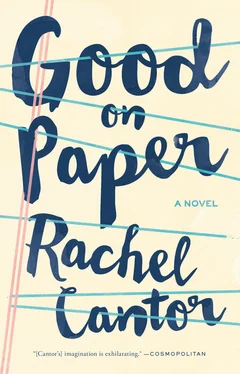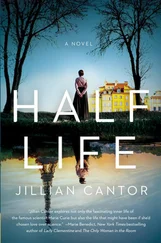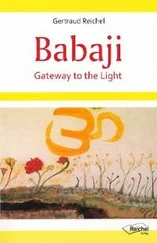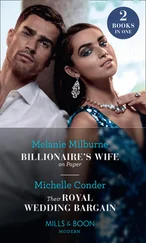Are you serious about anything? a starlet asked.
I’m serious about my spaghetti, he replied.
Journalists persisted, intent on solving the mystery of Romei. Barbara Walters inclined her head ten degrees to the left and said, Romei, may we get serious for a moment? You’ve said we mustn’t talk about your wife. Why is that?
He walked off the set.
But now this very public, very private man was writing about that most off-limit topic: his wife. And it was I— I —who would bring that work to the (English-speaking) world.
Carramba! I shouted. It wasn’t Latin, but it would do.
5. BEST INTERESTS OF THE CHILD

I’d planned to do laundry that night, but Ahmad rescheduled bowling so we could celebrate. We sent Andi, newly returned from Pammy’s with cinnamon on her lips, to get ready for bed, then Ahmad toasted me with what was left of the cabernet. At forty-five, he still looked like the boy I’d known thirty years before in Rome — fine skin, narrow frame, hair falling into his face. His soft-spoken demeanor caused some to think him harmless, but they were wrong: he was a sniper who flattened poseurs with a phrase and never felt remorse.
He wanted to know more.
I explained about Vita Nuova (Not that old chestnut! he exclaimed. I can’t believe Luigi Pieranunzi made me read that in college. Why would you make students read that, when there’s so much good Dante to read?). I didn’t enlighten him about my translation, and I didn’t have to tell him about Romei — Ahmad had read his work long before it had become fashionable — but I did explain about poetry and prose, the story of Romei’s wife. And grad students everywhere, the footnote at the apex of the ridge of the postmodernist canon. Andi, I said, would have someone else to look up to. It wouldn’t be just Ahmad doing Career Day! Nothing, I gushed, would ever be the same.
Let me adopt her, he said, sitting forward in his Eames chair. Let me adopt Andrea.
Oh, no , I thought. Not this again .
Ahmad, I said, we’ve been through this, like, a hundred times!
When I came home from India, pregnant and broke, I was desperate: how could I live in the City, an underemployed single mom? I considered returning to Suffern, where I’d lived for eight years as Ron’s wife. Telling myself I liked being a wife, I liked Ron’s jokes, his habit of counting socks and planning sex. Ron, who found the City dirty and, truth be told, me too. Where I’d thrown my life in the hot-water wash and watched it shrink. It would be less expensive in Suffern, I reasoned, but then I thought: living on the subway would be better than that.
Friends shrugged and looked embarrassed when I asked what I should do, as if I were asking something of them. Then I remembered Ahmad. He’d always been logical . Surely he’d have a better idea, one that didn’t involve giving birth on the IRT.
I hadn’t seen him for more than a year, not since Jonah, the unrequited love of his youth, had died in front of us, killed by a yellow cab on my thirty-fifth birthday. We’d been in high school together, the three of us (four if you count his sister Jeanette, though we weren’t friends then); I didn’t remember Jonah, but he remembered me. Actually, he more than remembered me: he tortured Ahmad for years with remembrances and besotted “what ifs.” So that when the three of us were to get together for the first time in twenty years, it was me Jonah was watching, not the road.
Or so Ahmad said. He blamed me for Jonah’s death, he said things , unforgivable things. He knew why my mother left us: It was obvious, look at me! What a slut I’d always been! All because I let Ahmad kiss me freshman year, though I was in love with T. — then I pushed him away, and was mean about it. He’d had choice words for me then, too, and our friendship, our beautiful friendship, melted away. When he called me twenty years later, I was about to divorce. I didn’t worry about our falling out: I only thought he knew me when . When I’d been young, before my twelve-year detour with T., when I still believed my future was shiny and bright. If I could just see that Shira reflected in his eyes, I might know how to live again, but we were barely together five minutes when Jonah appeared across the road.
When I met him at the Palm Court of the Plaza, pregnant, a year later, I saw not the angry man who’d just seen his best friend die, but the dear, sweet, generous friend of my youth. We reminisced and laughed, and cut postage-stamp-size cucumber sandwiches into quarters just for fun. I told him about translation, how I’d just started writing stories; he told me about his transformation from conservative think-tank analyst to college professor and also-ran Nobelist. I’d intended to ask only for advice, but, giddy with how well we were getting on, I thought: He should be a part of my life, our life. I might not inspire my child, but he could. So I asked him to be my child’s godfather. He shocked me by crying. Yes, he said, my God, yes!
It turned out he lost everything the night Jonah died. He came out, finally, losing not just his wife, which was no loss, but his sons as well.
We came to an understanding that day at the Plaza: I would be the child’s one true parent, but Ahmad’s name would appear on her birth certificate, his enlightened university would cover our insurance, her education. People would assume he was her (nominal) father, but we would know better: that her father was a Sikh I’d met in Delhi; when Andi was older, she’d know it too. We could even live at his place till we got on our feet. By some administrative fluke, his apartment was large enough for all of us, and then some.
We never left.
Ahmad turned out to be a great dad. He took on midnight feedings, and didn’t mind changing nappies (as he called them). He sang lullabies in Urdu and watched our Andi sleep. Later, he shucked his Italian shoes to help her construct mega malls out of Legos, and had tea with her many dolls. He endeavored to explain conservative economics on Career Day and entertained Andi’s friends by drawing pictures of them standing next to film stars. Still, I had to remind him: ours was an arrangement of convenience, in the best interests of the child. I was the mother: I made the decisions, I took the flak. Still, periodically, he asked about adoption. As it was, he’d say, his rights meant nothing. One blood test and they’d be gone.
Who’s going to make you take a blood test? I’d ask.
Every time he brought it up, he had a new argument. This time he asked, what if something happened —to me, he meant.
You mean, if I decided to abandon my baby at the airport?
I wasn’t comparing you to your mother, as you very well know.
If I died , then?
Or became incapacitated.
Or became incapacitated. Lovely, I said, holding out my glass for more wine.
We have to plan for contingencies, he said.
That’s what the birth certificate’s for! I said, or maybe I shouted.
He was concerned about our daughter’s development , he said. She was reaching the age of rational discourse. It was time she knew who her real father was.
Rational discourse? The girl who insists she has a telepathic relationship with Tinky Winky? Who believes most Chinese words are made up?
Shh! he said. The look he gave me could have made raisins out of grapes.
If we don’t tell her now, he said, she won’t forgive us when she learns the truth.
Читать дальше













